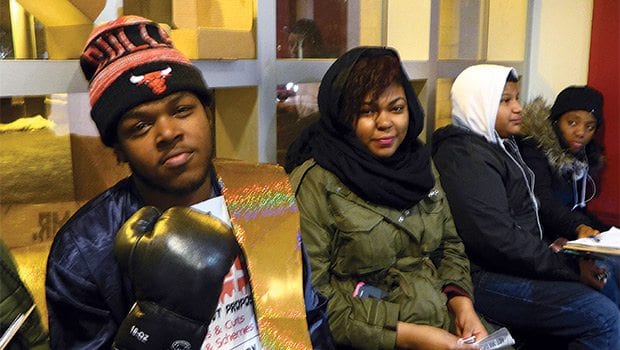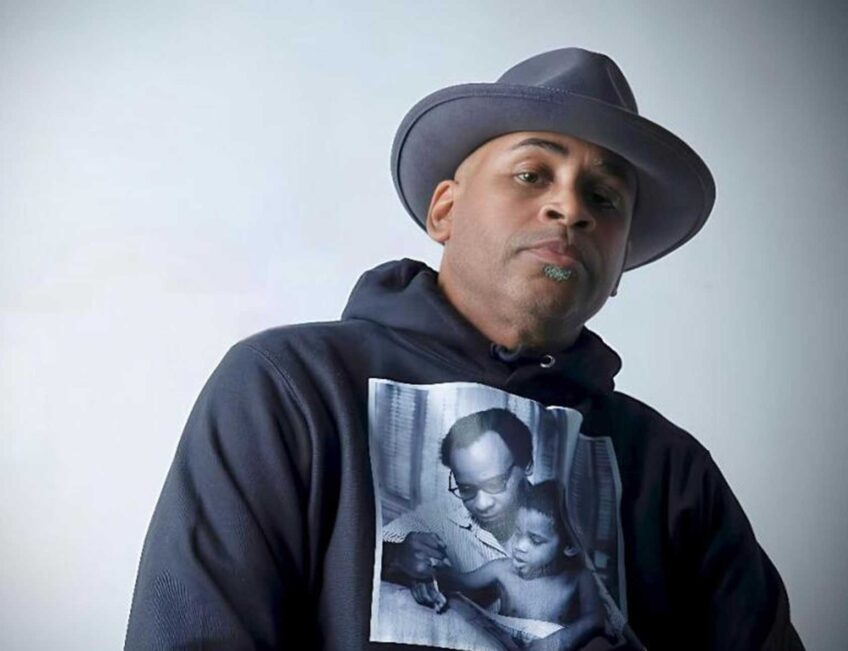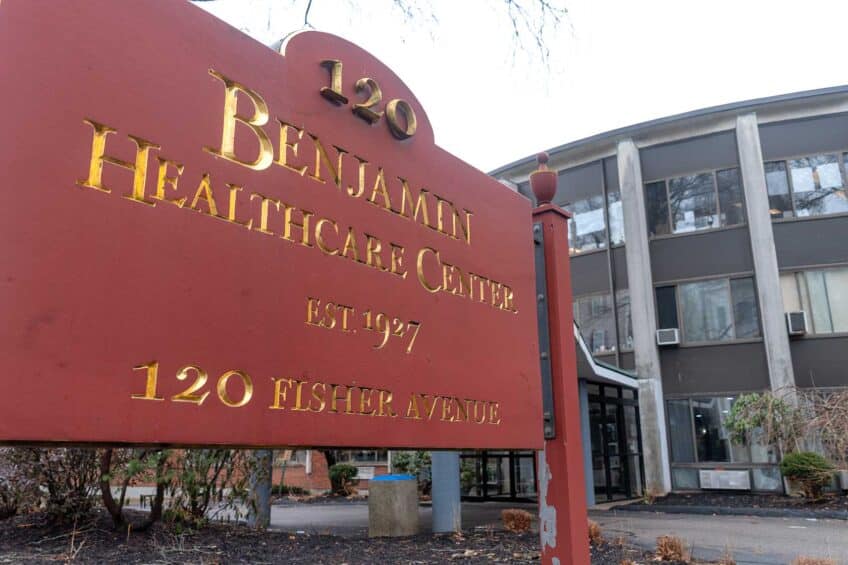T fare hike blasted as unequal
Proposal burdens the most vulnerable, many say

Elected officials, transit activists and city residents slammed the MBTA fiscal management control board’s proposed fare raises at a public meeting held last week. They charge that the hikes unequally strike at the most vulnerable — no matter what the MBTA’s own equity analysis says.
Time is running down for winning support for an alternative plan. With an operating budget deficit looming, the control board is looking to adopt one of two suggested fare increases to help bridge the gap. Its members are scheduled to vote on March 7, and any fare change expected to be implemented on July 1. The authority closed its period for accepting public comments on the proposals on Feb. 12.
Under the MBTA control board’s two suggested plans, fares would rise systemwide by an average of either 6.71 percent or 9.77 percent. Looking at the average may obscure the fact that the pricing upsurge is not distributed evenly: Some kinds of passes would see severe hikes, while Outer Express Bus passes would become significantly cheaper.
At an MBTA Fare Proposal public meeting at Roxbury Community College last week, Rep. Evandro Carvalho said the distribution of price hikes disproportionately burdens minorities, students and seniors. Many officials and residents who spoke out at the meeting added that for those with low and fixed incomes, any extra expense may be too much.
Meanwhile, an equity study commissioned by the MBTA that examined the two fare hike proposals concluded that minorities and low-income riders would not be disproportionately burdened or impacted. The study was conducted by the Central Transportation Planning Staff of the Boston Region Metropolitan Planning Organization.
Added to the mix: Members of the T Riders Union, a public transit advocacy program of Alternatives for Community and Environment, insisted at the event that budgets can be resolved with no change to fares or passes and no service cuts required.
The MBTA’s expects its operating budget to fall short by $242 million in fiscal year 2017, and that $7 billion needed for repairs will go unfunded, according to Brian Shortsleeve, the agency’s chief administrator.
Any cents too much
What may be a few extra cents per ride amounts to a substantial quality of life burden for those with low-incomes, claimed individuals such as Lynn Dann, community education coordinator for Epilepsy Foundation New England.
“A fare increase would be detrimental to those living with already-challenged monthly income,” Dann said during public testimony. She uses a Senior/TAP LinkPass, the cost of which would raise 10.3 percent under either MBTA plan.
For some riders, the higher cost may present a barrier to getting to medical care, Dann said, and she expected to dip into her food budget to cover the extra transit expense.
“It would impact my ability to get healthy food,” she told the Banner.
Hakeem Foreman, age 19, graduated high school last year. The cost of a T ride to school was always a consideration on his mind, weighed against the convenience of skipping a 15-20 minute walk in the cold, he said.
“12-30 cents might not seem a lot, but it adds up,” he told the Banner.
Sen. Sonia Chang-Diaz said that even with current fare levels, she receives reports from principals of students who miss school because they cannot afford the T pass. For struggling families, there may be a real decision between paying for a parent to go to work or for a child to go to school, she said.
Under a 2013 law, if the MBTA raises fares 10 percent this year it will not be able to increase them again for another two years.
“Our policy now is to have modest and predictable fare changes every two years, and by no more than 10 percent system-wide,” Shortsleeve promised at the meeting.
Not everyone was comforted. One person who took the mic pointed out that individual’s salaries are unlikely to increase on a similar two-year schedule.
Fare fairness
If the MBTA enacts its 9.77 percent average fare raise proposal, the cost of a single local bus trip with a Charlie Ticket will go from $2.10 to $2.25. With this change, a rider will break even if they buy a LinkPass and use it 38 times — and the average rider uses their pass 40 times, according to the MBTA’s Shortsleeve.
But there is disparity in how passes would be priced under the proposals: While the cost of an outer express passes would drop 22.6 percent, student’s five- and seven- day monthly LinkPasses would rise by 23.1 percent.
“Under both options presented, racial minorities will bear an increased burden in funding our system,” Rep. Evandro Cavallho said, “The increase in hikes are mainly on the bus line and the student passes and our seniors, and those are the areas that we have the most minority uses.”
Lack of other options makes residents more reliant on buses in Dorchester, Roxbury and Mattapan, he said, noting that 66 percent of the rides made with student passes and 60 percent of those made with local bus passes — the cost of which would rise 16 or 19.5 percent under the proposals — are made by minorities.
The raises on these passes would also come at a time when there are cuts to projects such as the Fairmount Line, he added. Planned improvements to the line would bring greater transit access to a corridor with limited public transportation, which is largely home to minorities and those with low-incomes.
City Councilor Tito Jackson also railed against the price increase on student passes, and said such a move may inspire the city to discontinue sending its approximately 4,500 grade seven and eight students to school on the T.
“The proposals before us are between horrendous and terrible,” he said. “They will have disparate effect on most vulnerable, poor riders”
The equity study commissioned by the MBTA painted a different picture.
“In CTPS’s fare-equity analysis, staff compared the absolute and relative fare increases between riders who are minorities and all riders, and between low-income riders and all riders. We applied the MBTA’s disparate-impact and disproportionate-burden policies and found neither the presence of a disparate impact nor a disproportionate burden,” stated CTPS’s reports on both options.
Public’s transit
Statewide taxpayers who do not use the T contribute more than a billion dollars to its functioning, Shortsleeve said. “That’s one reason people think it’s reasonable to our riding customers to pay a little bit more.”
But one need not use the T personally to benefit from it, or to recognize its value to the wellbeing of the Commonwealth, Chang-Diaz asserted.
“Transit is a public good. It’s not a deal for the riders,” she said. “I urge you not to fall into the trap that transit is for riders only and ought to be paid for by the riders.”
Along with reducing pollution and traffic congestion, public transit connects unemployed individuals with jobs and other opportunities, bringing greater prosperity to the state and allowing for cycles of poverty to be broken, she said.
Louise Baxter, a member of the T Riders Union, pointed out that taxes are not a pick-and-choose subscription service.
“I pay taxes for stuff that I don’t use,” she said, during the public testimony session.
Option 3?
Members of T Riders Union promoted a third funding possibility: Utilize the Transportation Finance Act of 2013 to its full effect.
Under the act, the governor and state Legislature may direct further funds — generated through tax increases on goods like cigarettes and gas — to transit needs, such as funding the MBTA. The legal option is there, but the state would have to seize it.
Should state government elect to put in the full amount allowed under the act, the MBTA could receive $261 million, clearing out its projected operating budget gap, said Lee Matsueda, political director for Alternatives for Community and Environment.
“[We want to] make sure the board members know they have the ability to balance the budget without fare increases, and the way to do that is to remember they have more state funding,” Matesuda said.






